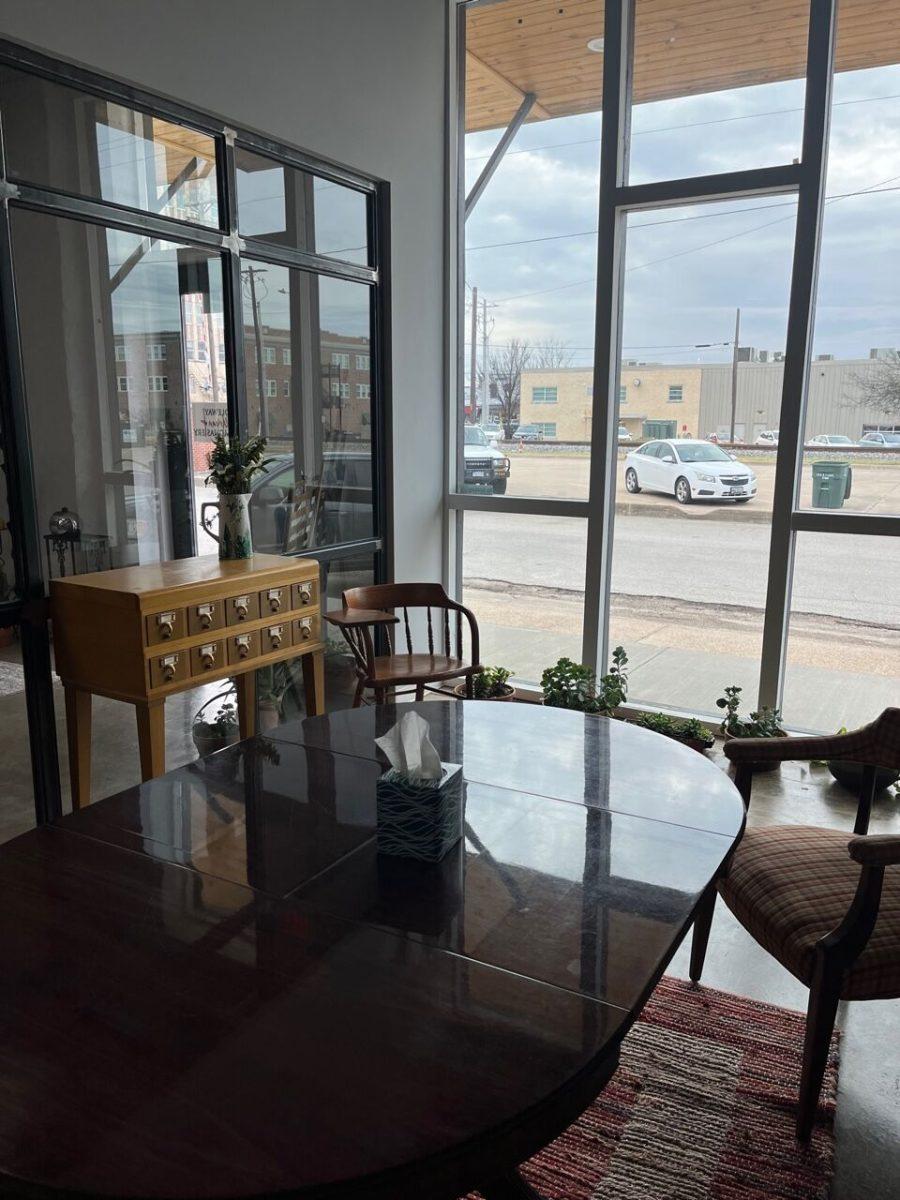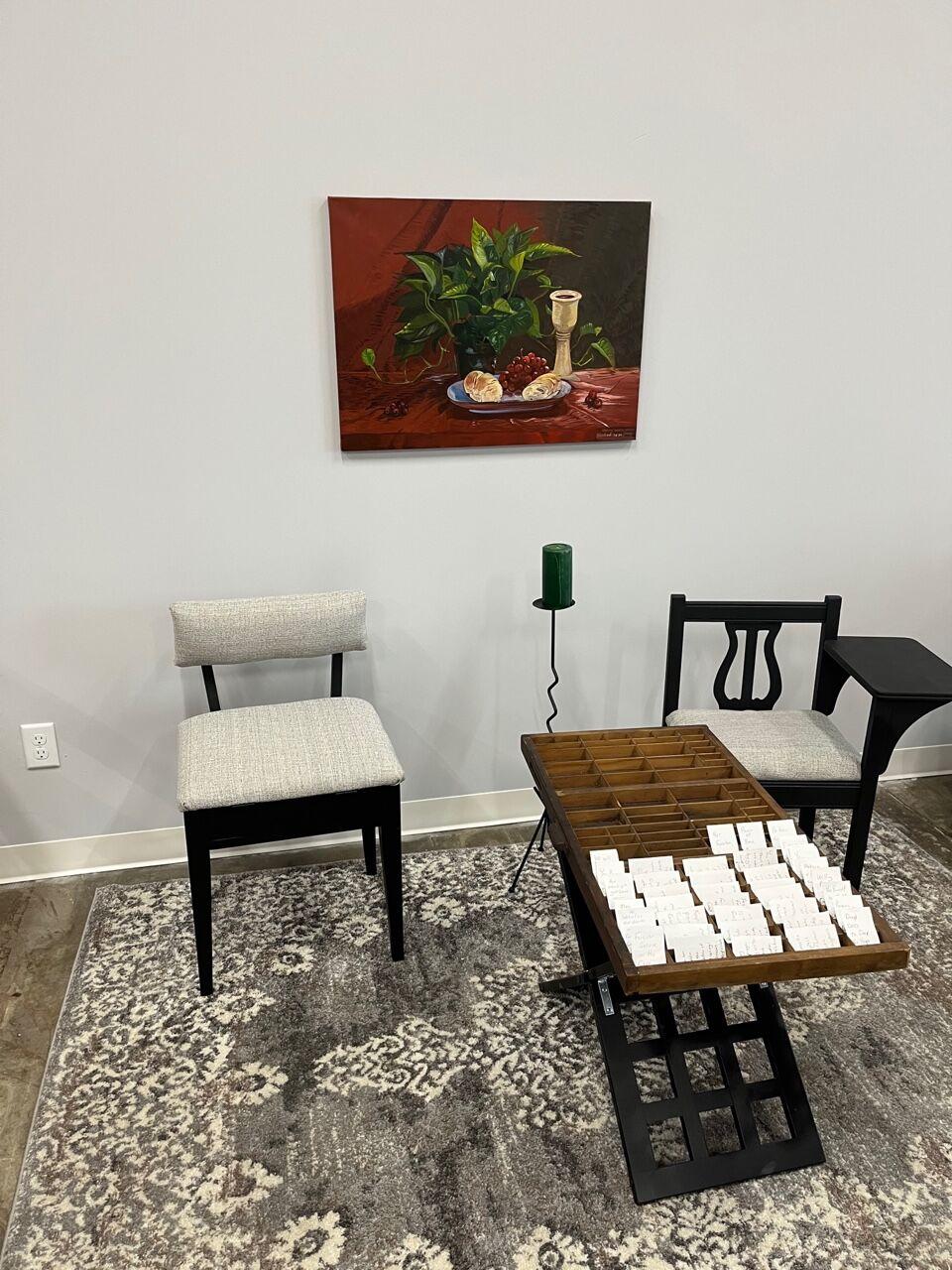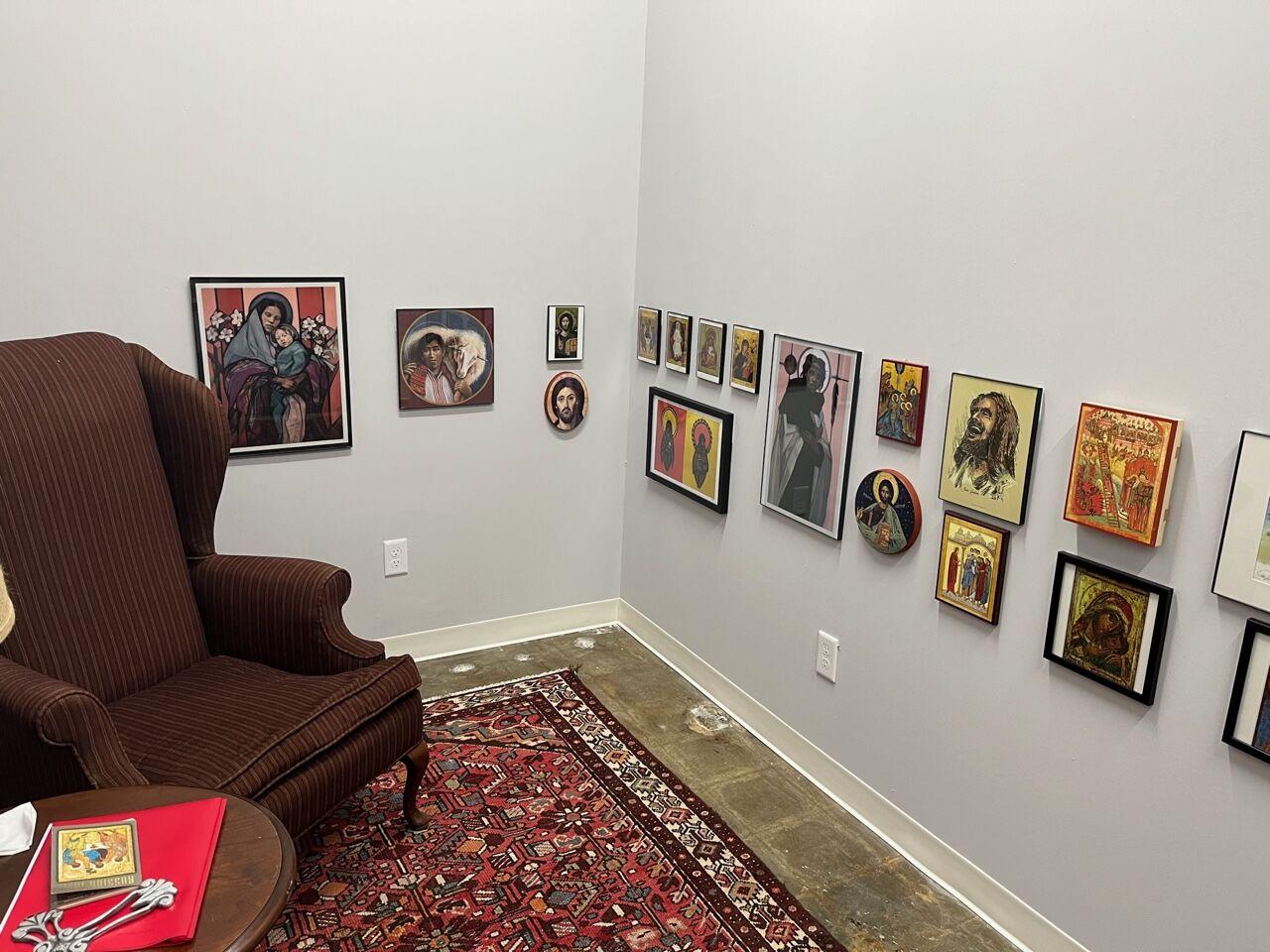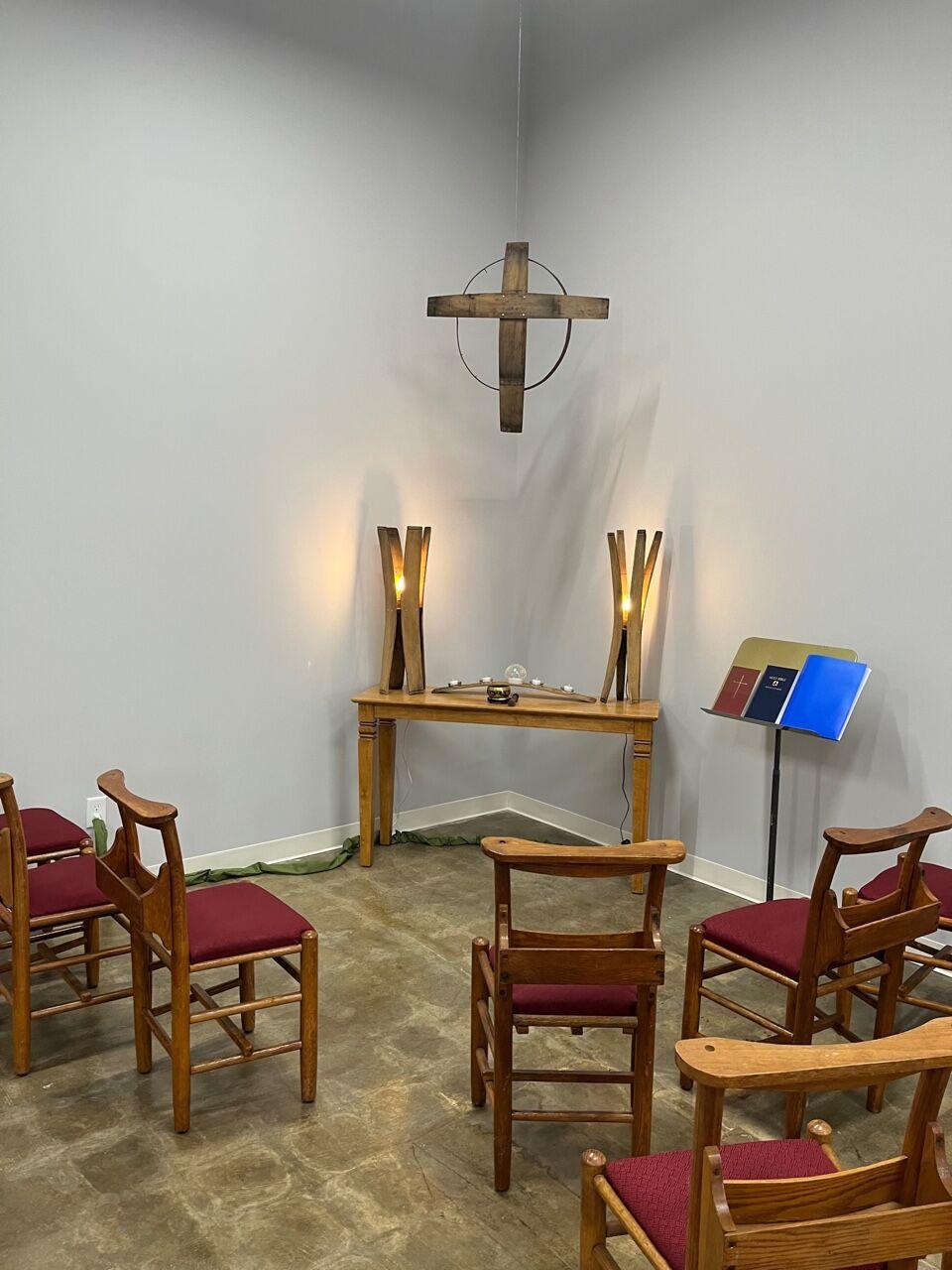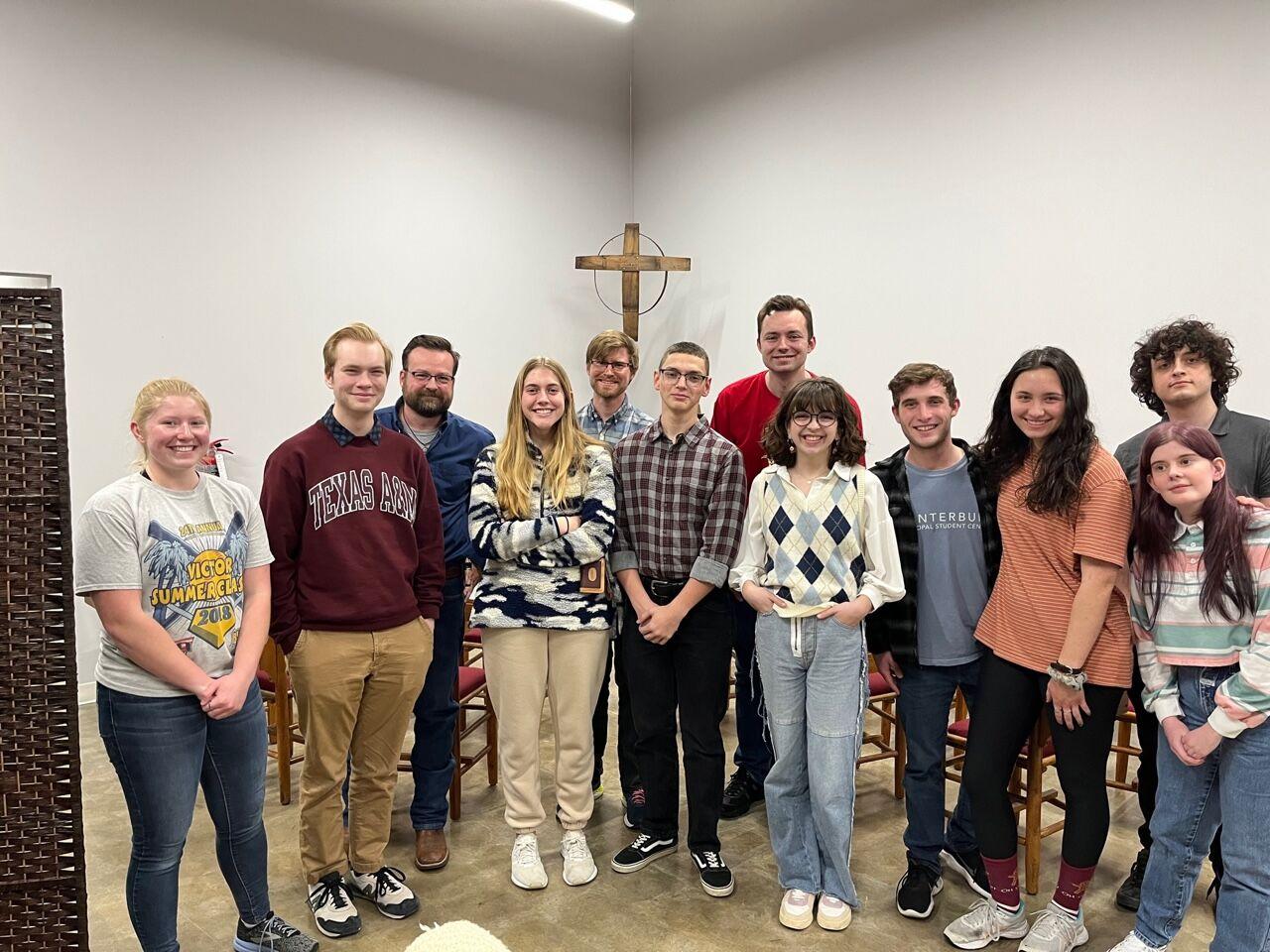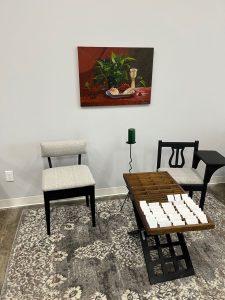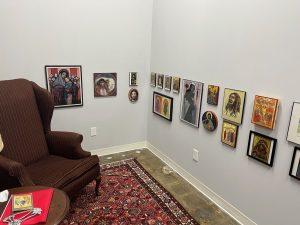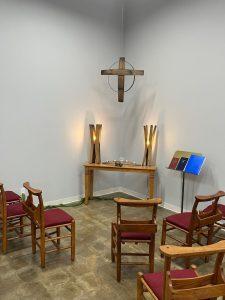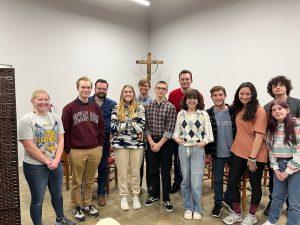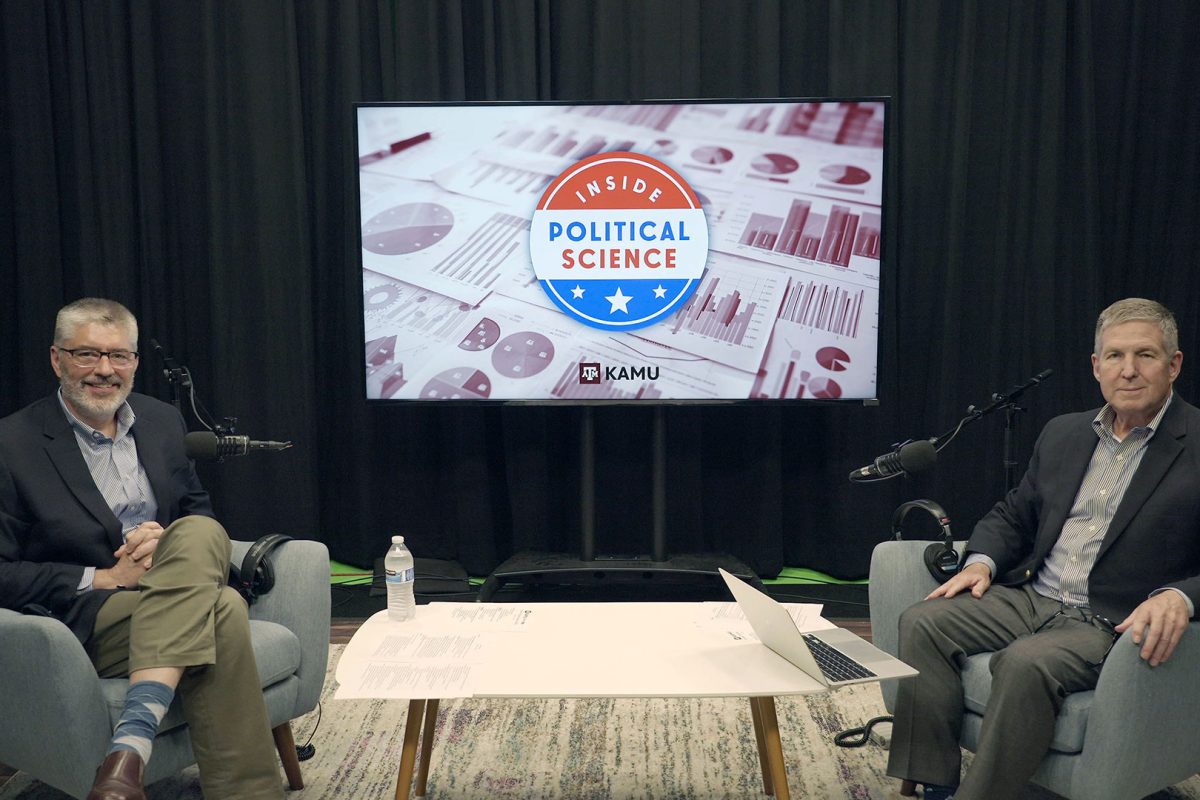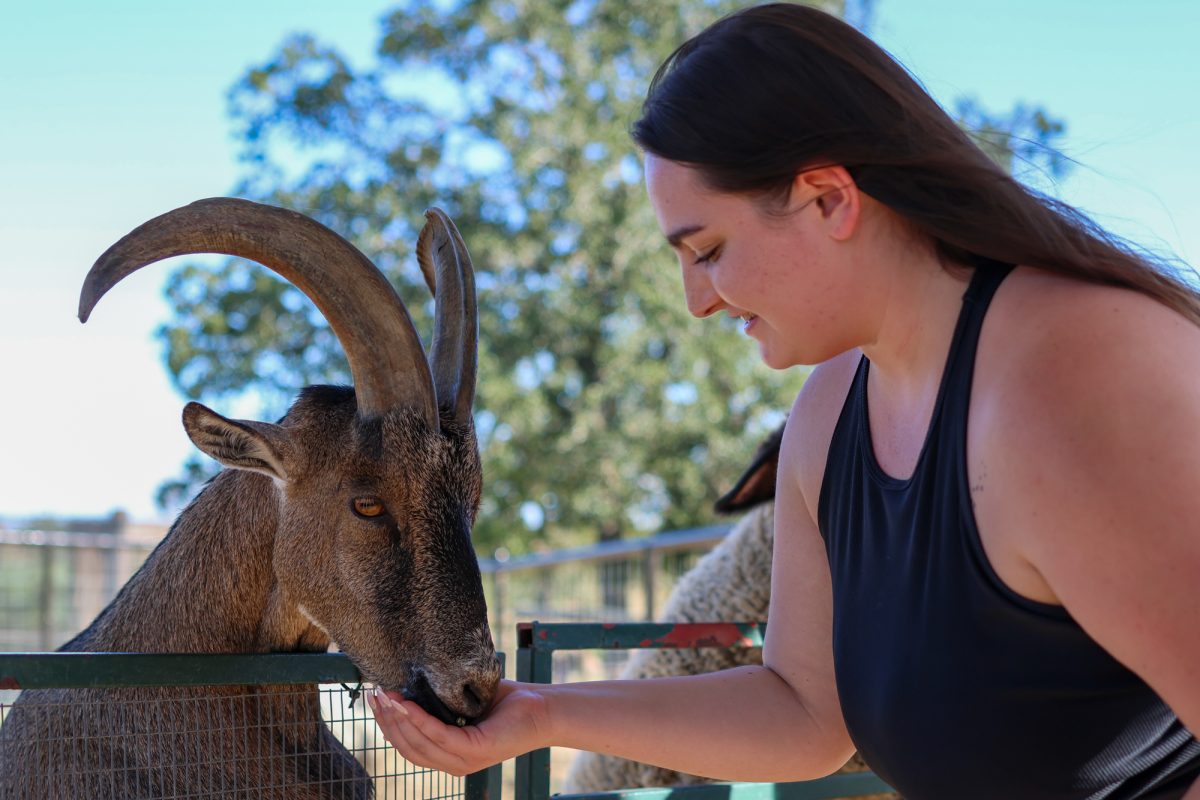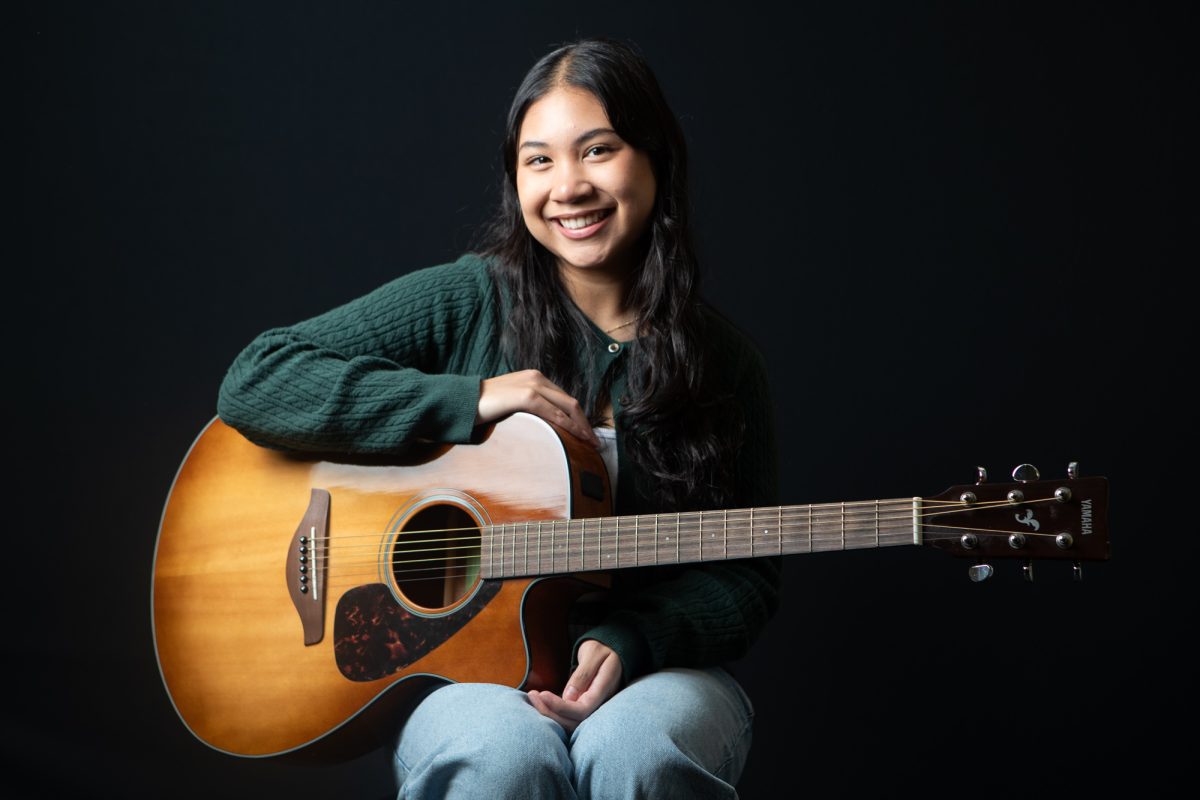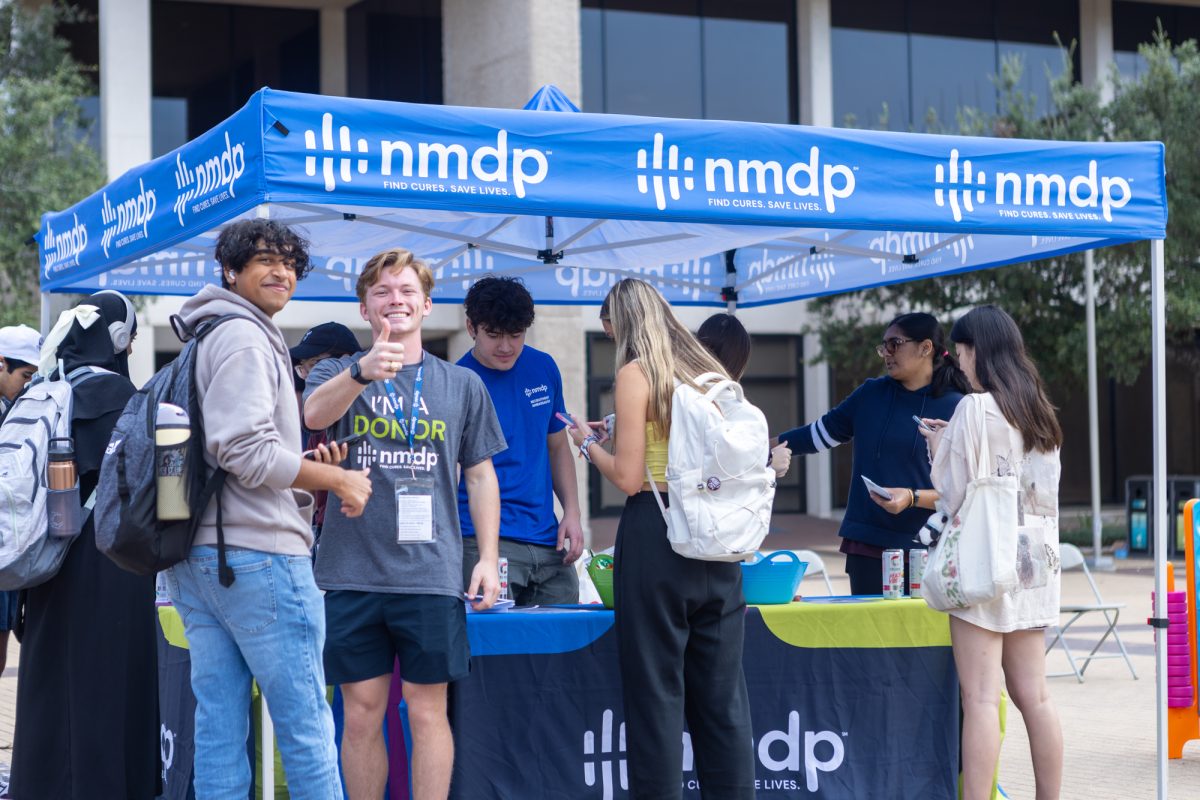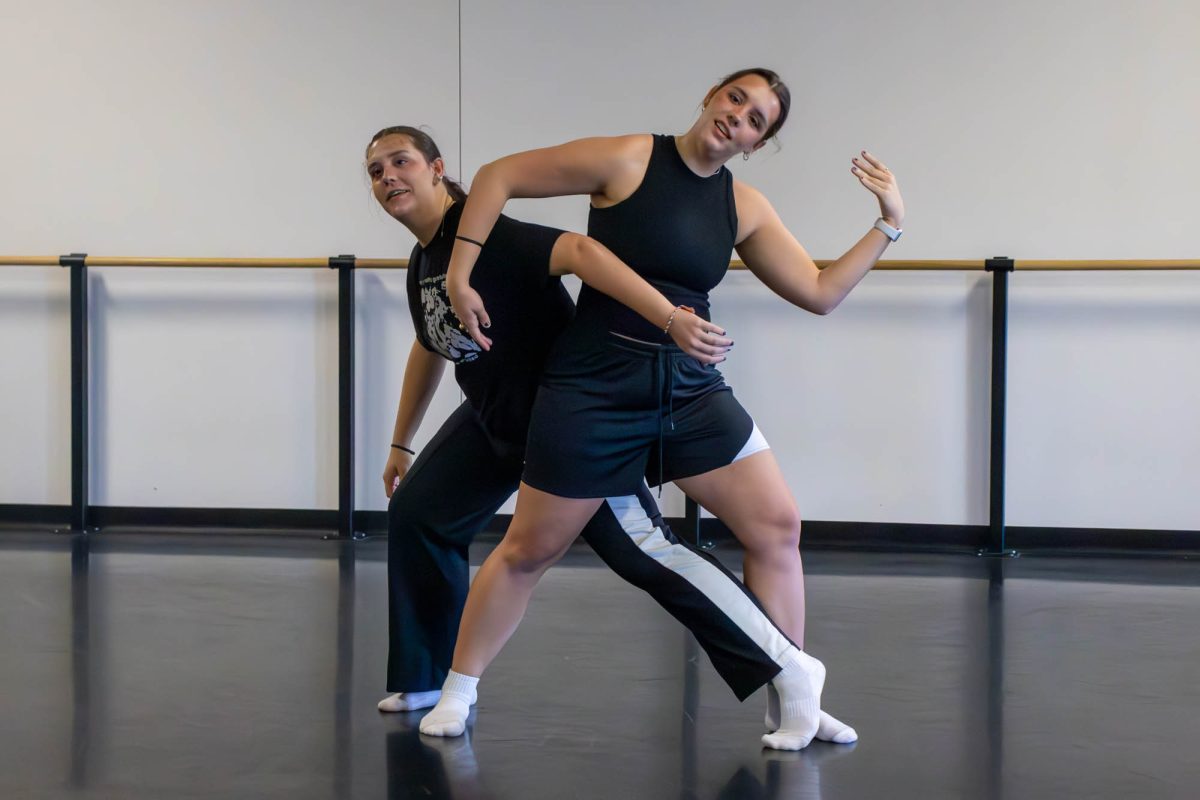Middleway Urban Monastery sits unassumingly on the corner of North Tabor Avenue and East 24th Street, in a remodeled and partitioned building that was once a Piggly Wiggly, painted white. Three doors down from the original corner entrance of the building, Middleway’s glass reflects a quaint view of north Downtown Bryan over the train tracks, toward Caffé Capri and Casa Rodriguez. Just out of sight on the adjacent street is the Longhorn Tavern Steakhouse, with its characteristic bull’s head logo emblazoned on the side of the building, while Middleway sports merely a sign printed onto its glass door. Much like a person’s spiritual life, it rests only a couple blocks outside of the exact center of Downtown Bryan; nestled right in the community’s heart.
The monastery presents itself spiritually as humbly as it does physically. Taking its name from the ancient phrase “via media,” it is a picture of moderation between the “high” and “low” churches of the area, and its guiding council stated such an intention.
Born of a group of spiritual directors in the Brazos Valley and the Episcopal Diocese of Texas, the monastery is an implement for the group to treat the “decline of religion in America” — the general dissatisfaction of the public with traditional practices, churches and church messages. The guiding council believes people are still seeking “something,” and hope this new monastery can direct them.
“No proselytizing, no telling you how to think, no judging. We allow you to question and discover God alone but in a community of fellow seekers,” the monastery’s website reads, and council members affirmed.
Co-founder Kathleen Phillips, a spiritual director and director of the FIND School for Spiritual Direction and Formation, said the monastery’s origins was as an idea that came to a group of spiritual directors “somewhat selfishly.” During their monthly meetings the directors came to desire a non-traditional place of worship, study and spiritual introspection. Despite the title of “monastery,” Middleway is not the kind of place to see live-in nuns or monks, Phillips said. Rather, it is a quiet center for spiritual reflection and guidance, where people may come free of charge “to experience God the way you need to,” she said.
The center features a number of means to this end. Beginning operations during the pandemic in 2020, the center’s spiritual directors and volunteers lead prayer practices, such as compline, centering prayers, “poetry as prayer” and other forms of introspection. The physical center opened in November 2021, with a small chapel area for group or single use, private rooms where one may meet with a spiritual director or spend time meditating alongside religious icons, a diverse library and even art stations — another departure from a traditional religious institution. Periodically, the center’s directors and volunteers host workshops of all kinds.
Kelli Davis is one such spiritual director, although she said she prefers “companioning” to directing. A College Station resident, Davis is a member of the Gathered Community of Spiritual Directors in Texas.
“[Spiritual direction], to me, is companioning somebody as they walk through life, seeing where God is present, noticing God in the ordinary of life — through the highs, the lows, the in-between,” Davis said. “So, I like to use the word ‘companioning.’ It’s a little less intimidating, and really, it’s just sitting and listening and helping people to be aware of their God in their life.”
There are people, not just in the local community, but worldwide who have been deeply hurt or misunderstood by religious institutions and groups, Davis said. To her, Middleway serves to meet people where they are in life, “the same way Christ did.”
“I am very excited that we have something in this community where we can be open to whoever walks through the door. I’m excited that it’s here downtown, where we have a little bit of an urban feel,” Davis said. “It’s open throughout the week, during work hours. Someone can just venture in and ask a question, and somebody is here to listen and in a non-threatening, generous and gracious space.”
The monastery — and its free, community resources — was made possible by the Episcopal Diocese and sponsorship of St. Andrew’s Episcopal Church in Bryan. The Rev. Daryl Hay, rector at the 155-year-old St. Andrew’s and ex-officio guiding council member, said the history of Christian spirituality is deep and wide. As a priest, he naturally believes in the institutional church, but recognizes that not everybody is comfortable or wants to take part of that kind of Christian community. Hay and the Rev. Rich Nelson, campus missioner for the Canterbury Episcopal Student Center, serve in support of the monastery’s leadership and as representatives of the diocese.
“With so many of those other groups people are familiar with, they’re trying to get you to believe a certain thing. They’re trying to get you to join something, saying, ‘You come here and we’ll tell you what you need to know.’ And I think Middleway is the exact opposite,” Nelson said. “It flips that whole model; we’re not here to convince you anything or tell you what to believe, but just to provide a blank canvas and some people who have training to be supportive of people in their journey. It is a very different model for engaging with people about their faith life than you find at a church or lots of other Christian organizations.”
Middleway is still an expressly Christian institution, Hay said, but that “blank canvas,” even with its boundaries, can stretch far and wide. Its staff include Episcopalians, Lutherans, Presbyterians and many more, including the disaffected individuals who cannot find a spiritual home in traditional spaces.
“It’s a grassroots thing, we’re here as official church-people giving support to it, but really the people who are making this happen day-in and day-out are church members, spiritual directors like Kelli,” Hay said.
The diocese supports programs such as Middleway and Canterbury through The Great Commission Foundation, a multi-million dollar fund created following the diocese’s sale of the St. Luke’s Hospital system in Houston, Nelson said. The sale also spawned the Episcopal Health Foundation, which is a significant group in Texas health research and advocacy, he said. The work of the Monastery, however, is done almost entirely by volunteers while the diocese keeps the lights on.
“In church research-speak, people are often called Nones and Dones. People who have no religious affiliation and maybe never have, or people who are done with church because they had a bad experience but still want a community,” Nelson said. “So part of the hope is that over time there will be a community of those people who get to know each other as we have workshops and things get connected. Kathleen Phillips — a lot of this comes from her heart, she wanted to create a space for people who were in those circles.”
Although the group of directors first wanted a non-traditional space for themselves, a 2019 study by the Pew Research Institute truly hammered home the urgency of increasing religious disaffection, Phillips said.
“As it came about with the study by the Pew Research Institute, on the people on religion in America, that there was just this nosedive of people affiliating with any religion,” Phillips said. “And then we looked at our county numbers and found out that there were about 135,000 people in Brazos County alone that do not affiliate with a religion. And that’s more than half our population. So, it just kind of grabbed us since we, as spiritual directors, often hear from people who are feeling that way. We kind of put two and two together and thought, ‘Hey, our dream for us actually might be useful for other people.’”
Heidi Campbell is a council member for Middleway, professor in the Department of Communication at Texas A&M and an internationally known author of several books on the intersection between religion and digital media. Nelson and Phillips said Campbell has been a driving force for much of Middleway’s non-traditional programming, workshops and online content.
“Teaching at A&M, I find that while students may be pulling away from religious institutions, organizations and formal churches, they’re not pulling away from spirituality,” Campbell said. “This is the time of year here where they’re trying to find their identity, or where they’re going to be career-wise, where they’re going to be walking. There’s a lot of searching happening. And I think having a space, saying, ‘Hey, you can do that searching,’ but if you don’t feel comfortable doing it in a formal organization that’s going to want you to affiliate with them, I think [Middleway] is really the dream thing.”
Nelson said Middleway is currently working with a group of marketing students from the Mays Business School on how to present itself and what it hopes to achieve to the public, particularly departing from the “typical” view of what a “monastery” entails.
“I think people want those conversations without the judgment, saying, ‘Hey, I haven’t figured this all out.’ To be willing to walk with them and do what spiritual direction does best by fully listening and offering comfort, wisdom and hope. I think it’s so important,” Campbell said.
As part of its outreach to the community, Middleway hosted a “labyrinth walk for peace,” an “ancient form of meditative walk” that follows a meandering path to the center, geared toward prayer and purposeful contemplation, Hay said. The prayers were encouraged to be for peace amid wartime overseas in Ukraine and many other regions globally, while demonstrating what Middleway might offer. In the near future, the council hopes to develop a greenspace for meditative activities and community building, as well as hosting documentaries and talks, the council said.
For more information on workshops and events, Nelson encourages individuals to sign up for the monastery’s email newsletter from their website, to follow its social media or to simply stop by on a free weekday and say hello.




